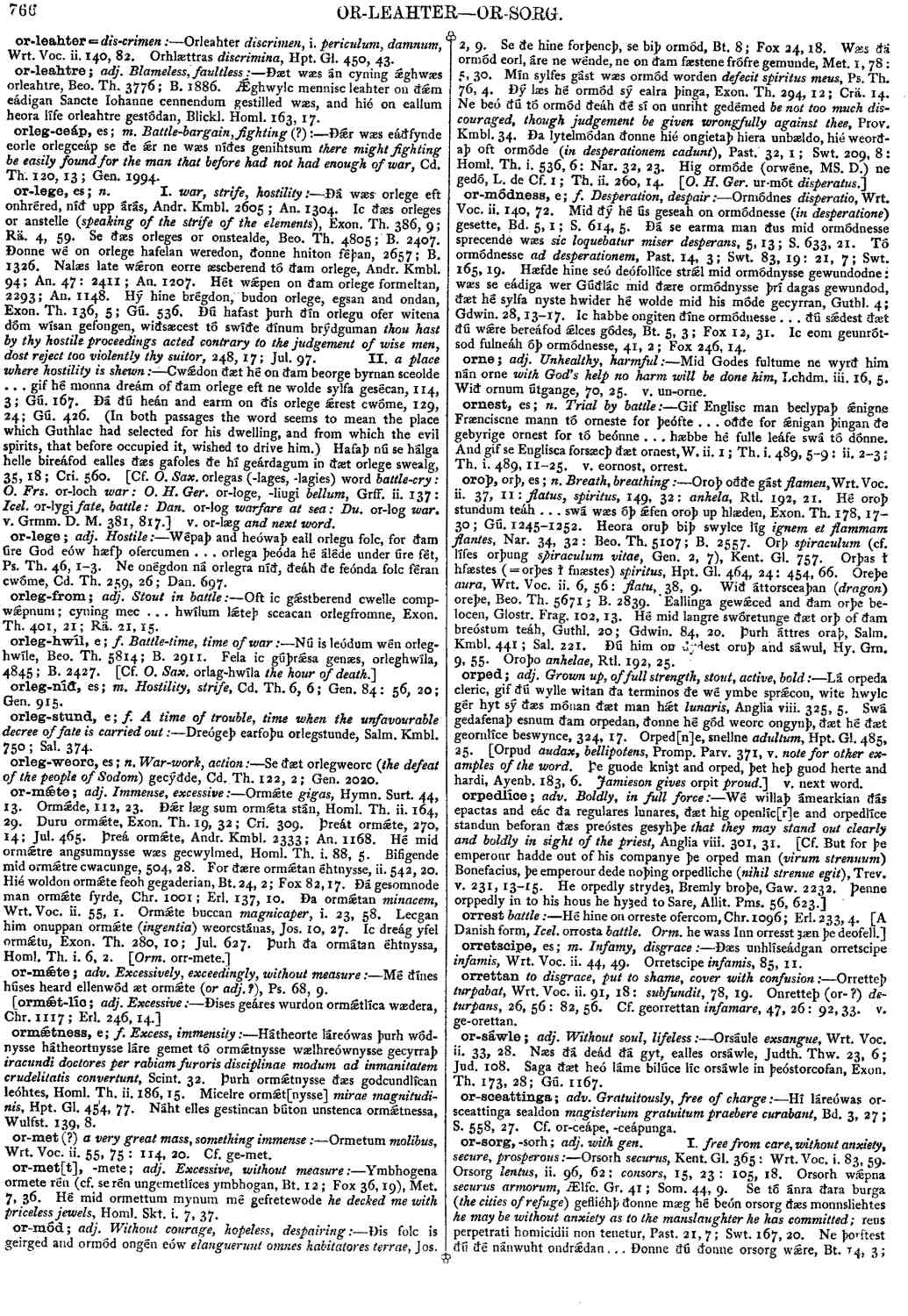or-lege
- noun [ neuter ]
-
Ðá wæs orlege eft onhréred, níð upp árás,
- Andr. Kmbl. 2605 ; An. 1304.
-
Ic ðæs orleges or anstelle
(speaking of the strife of the elements),
- Exon. Th. 386, 9; Rü. 4, 59.
-
Se ðæs orleges or onstealde,
- Beo. Th. 4805; B. 2407.
-
Ðonne wé on orlege hafelan weredon, ðonne hniton féþan,
- 2657; B. 1326.
-
Nalæs late wǽron eorre æscberend tó ðam orlege,
- Andr. Kmbl. 94; An. 47: 2411; An. 1207.
-
Hét wǽpen on ðam orlege formeltan,
- 2293; An. 1148.
-
Hý hine brégdon, budon orlege, egsan and ondan,
- Exon. Th. 136, 5; Gú. 536.
-
Ðú hafast þurh ðín orlegu ofer witena dóm wísan gefongen, wiðsæcest tó swíðe ðínum brýdguman
thou hast by thy hostile proceedings acted contrary to the judgement of wise men, dost reject too violently thy suitor,
- 248, 17; Jul. 97.
-
Cwǽdon ðæt hé on ðam beorge byrnan sceolde . . . gif hé monna dreám of ðam orlege eft ne wolde sylfa gesécan,
- 114, 3; Gú. 167.
-
Ðá ðú heán and earm on ðis orlege ǽrest cwóme,
- 129, 24; Gú. 426.
(In both passages the word seems to mean the place which Guthlac had selected for his dwelling, and from which the evil spirits, that before occupied it, wished to drive him. )
-
Hafaþ nú se hálga helle bireáfod ealles ðæs gafoles ðe hí geárdagum in ðæt orlege swealg,
- 35, 18 ; Cri. 560.
Bosworth, Joseph. “or-lege.” In An Anglo-Saxon Dictionary Online, edited by Thomas Northcote Toller, Christ Sean, and Ondřej Tichy. Prague: Faculty of Arts, Charles University, 2014. https://bosworthtoller.com/24955.
Checked: 0